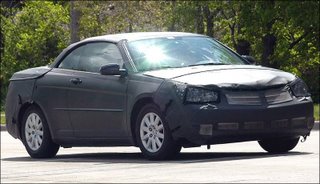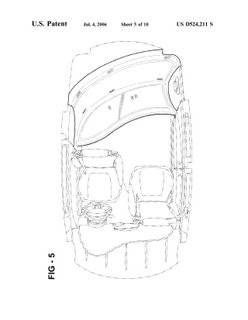Bradford Wernle Automotive News / July 3, 2006 - 6:00 am DETROIT -- Roger Penske plans to steal a page from Mini's playbook when he starts selling Smart cars in America in 2008.Penske thinks his UnitedAuto Group Inc. can profitably distribute DaimlerChrysler's stylish Smart ForTwo minicar by signing 30 to 50 franchised dealerships in urban markets, setting modest sales goals and relying on unconventional marketing techniques.
Some Smart franchises will be assigned to dealerships owned by Penske's UnitedAuto Group Inc. -- but not all. "This will not be an exclusive UnitedAuto network," Penske said. "We need to pick the best partners."
Penske made his remarks last week after DaimlerChrysler AG CEO Dieter Zetsche announced plans here to introduce Smart to the United States. Initially, Smart dealers will have one nameplate to sell: the ForTwo, a tiny, two-seat city car. Later,
DaimlerChrysler may add a diesel option, a cabriolet and perhaps a hybrid-powered model.
Dave Schembri, a former Mercedes-Benz executive, will be president of Smart USA, a new, wholly owned subsidiary that UnitedAuto will set up to market and distribute the cars.Schembri and Penske did not announce sales targets, but they have modest expectations. On a per-store basis, Smart dealers might expect to match the unit sales volume of Mini dealers -- about 40 cars per month. If so, Penske could expect to sell 15,000 to 20,000 per year.
The business case for Smart is designed to give dealers a chance to be profitable within the first year, Penske said. With a likely base price of $15,000 or so, the ForTwo will not deliver the profit margins of a luxury car. But dealers can expect to sell lots of accessories to customers -- just as Mini dealers do, Penske predicted.
"You can get wheels, you can get upgrades, you can get radios and you can get panels with different colors," he said. "This vehicle is almost like an Erector Set."
Because Penske will set up the dealerships, DaimlerChrysler can keep its costs low. The automaker's total investment in the U.S. Smart network will be substantially less than $100 million, estimates Arndt Ellinghorst, an analyst for Dresdner Kleinwort Wasserstein in Frankfurt.
Thus, DaimlerChrysler can boost worldwide Smart sales a bit without much financial risk.
Why not Mercedes?DaimlerChrysler considered three options for Smart's U.S. distribution: Mercedes-Benz dealerships, Dodge dealerships and an independent distribution group. In Europe, where Smart was launched in 1998, DaimlerChrysler manages the dealer network. Mercedes dealers didn't seem right for the job because Smart doesn't fit easily with upscale products such as the E-class or S-class sedans.Dodge dealerships weren't a great fit, either.
Many of those dealerships are in suburban or rural markets where Smart customers aren't likely to be found.So DaimlerChrysler reached out to Penske, a familiar face. Penske said he started serious negotiations with DaimlerChrysler during the Detroit auto show in January, when he met with Zetsche at the Mercedes exhibit.
"They wanted to have people who would get up in the morning and focus all their attention on this brand," Penske explained.
The two executives already had established a "comfort level" from previous business ventures. Penske's logistics company, Penske Truck Leasing, buys about $1 billion in trucks a year from Freightliner, a DaimlerChrysler subsidiary that Zetsche once ran. Penske Truck Leasing has about 65,000 Freightliner trucks in its fleet.
UnitedAuto also owns two Smart dealerships in Great Britain, plus several DaimlerChrysler stores in the United States.
When Penske chooses his dealers, Mercedes dealers could get a second crack at Smart. And several say they would be interested.Mark Bennet, general sales manager of Mercedes-Benz of Naples (Fla.), says the Smart's practicality and novelty could resonate with customers. His store applied for a franchise before DaimlerChrysler's announcement. Says Bennet: "We'd like to have it."
HomecomingSchembri, 53, is the former Mercedes executive who was originally assigned to run Smart's U.S. operations for the German automaker. But Smart USA was dismantled after Mercedes canceled plans to sell the brand in the United States.
Subsequently, Schembri left Mercedes to head sales and marketing at Mitsubishi Motors North America, a company in turmoil that was trying to stabilize plunging sales. He resigned his Mitsubishi job in February.
Schembri said Penske contacted him the day he left Mitsubishi. He said he has been working on the Smart project ever since. He will not be starting from scratch -- Schembri had done considerable legwork for Smart for Mercedes.Before the German automaker pulled the plug last year, Schembri had traveled all over the country to select Mercedes dealers for the Smart network. He had started to prepare a marketing campaign aimed at young consumers and had targeted the most promising markets on the East and West coasts.
Talkative, outspoken and frank, Schembri was generally well-regarded by the Mercedes dealers he dealt with. They knew that he had experience selling cars to young consumers when he was at Volkswagen, before joining Mercedes.

